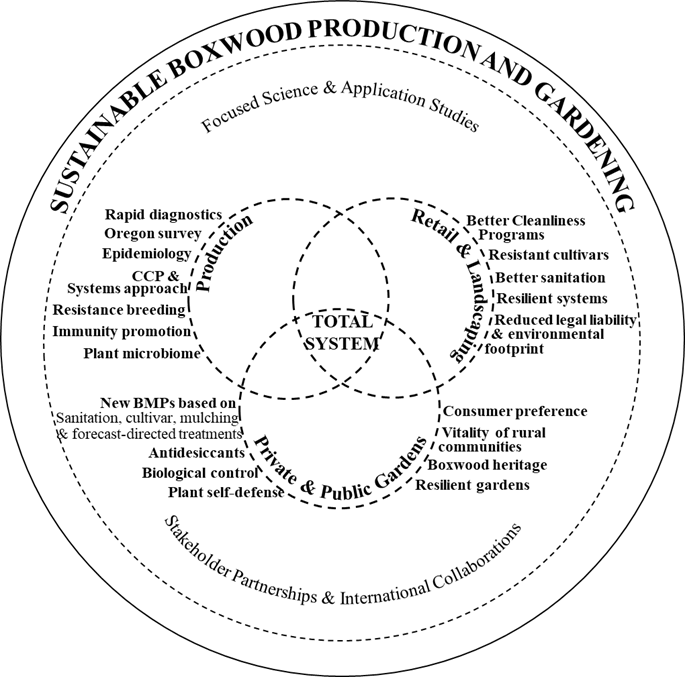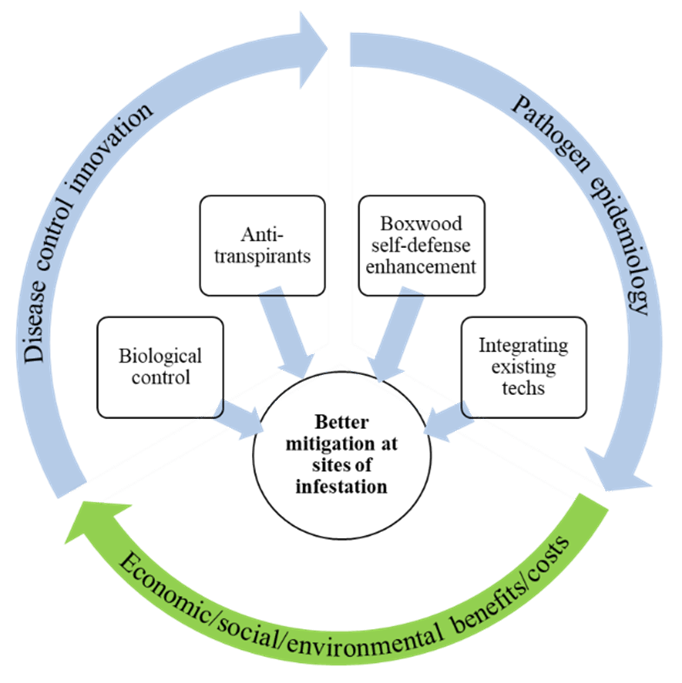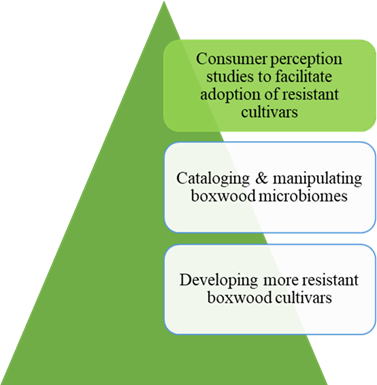Boxwood Blight Insight Group Objectives & Approach
Specific Objectives & Approaches
1. To prevent blighted plant materials from entering the nursery trade by
- Developing on-site commercial strip-test kits for pathogen detection
- Surveying Oregon nurseries for boxwood blight
- Bridging major knowledge gaps in the blight epidemiology
- Latent infection under Oregon climatic conditions
- Pathogen colonization, latency and phenotypic diversity
- Cultivar and relative humidity impacts on pathogen sporulation
- Field epidemiology
- Identifying critical control points (CCP) at production nurseries to inform development of best management practices (BMPs)
2. To better manage the disease at sites of contamination by
- Evaluating antidesiccants (antitranspirants) for their potential as a physical barrier to mitigate blight development under field conditions
- Further developing biocontrol agents into final products
- Enhancing boxwood self-defense through
- Systemic acquired resistance inducers and selective fertilization
- Silicon treatment and ultraviolet radiation
- Integrating three key existing technologies
- More resistant cultivars
- Mulching
- Fungicide program
- Preventing less susceptible boxwood cultivars from becoming a ‘Trojan horse’ while encouraging their adoption
4. To ensure all recommendations are economically viable by
- Developing baseline production model
- Analyzing cost/benefits of changes in blight mitigation practice
- Partial budgeting
- Performing sensitivity tests
- Determining the economic return of long-term investment in blight mitigation
- Assessing the overall project impacts
5. To put research into practice – helping stakeholders and the next generation of scientists and educators to achieve sustainable boxwood production and gardening
- Translating research into products, protocols, and recommendations
- Project newsletter
- Image and video library
- Practical knowledge
- Products and protocols
- BMPs for different clientele groups
- Delivering to end users
- Outreach website and online knowledge center
- Field demonstrations
- Webinars and virtual meetings
- Partnering with national ‘networks’
- Workshops and symposia
- Presentations and recordings
- Next generation scientists and educators
- Citizen science projects
- Documenting project impacts
- Changes in knowledge
- Changes in practices
- Changes in conditions







